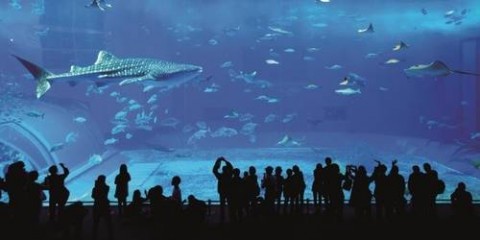
GCED Basic Search Form
Quick Search
You are here
News

At the invitation of UNESCO and its Intergovernmental Oceanographic Commission, high-level world experts will gather on 4-5 December 2017 in Venice, Italy, to define a roadmap to advance ocean literacy at a global scale. At this occasion, UNESCO will release “Ocean Literacy for All. A toolkit”, a publication highlighting ocean literacy activities around the world and bringing together experiences from a variety of stakeholders who promote ocean literacy as a major tool for sustainable development in classrooms, boardrooms and governmental institutions.
Most of us live our lives unaware of how our day-to-day actions affect the health of the ocean, its sustainability and its many resources on which we depend. The ocean is Earth’s life support. “Far and away, the greatest threat to the ocean, and thus to ourselves, is ignorance”, as declared by Sylvia Earle, President of Mission Blue. The ‘ocean blindness’ can be countered by improving access to accurate and compelling ocean education that strengthens the learner’s connection with the ocean. This is the essence of ocean literacy: an understanding of the ocean’s influence on us and our influence on the ocean.
“Ocean Literacy for All. A toolkit”, the two-volume manual produced by UNESCO’s Regional Bureau for Science and Culture in Europe (Venice, Italy) and Intergovernmental Oceanographic Commission (IOC) is the result of joint work and contributions by members of the global partnership led by IOC. It builds on the “Ocean Literacy for All” initiative, an IOC voluntary commitment to the UN Ocean Conference (New York, June 2017), as well as the Call for Action issued at the end of the Conference, which calls on all stakeholders to “support plans to foster ocean-related education […] to promote ocean literacy”.
The publication provides educators and learners worldwide innovative tools, methods and resources to understand the complex ocean processes and functions and, as well, to alert them on the most urgent ocean issues. It presents the essential scientific principles and information needed to understand the cause-effect relationship between individual and collective behaviour, and the impacts that threaten the ocean health. Trust is that it will inspire citizens, scientists, educators and learners to take greater personal responsibility for the ocean, as well as work through partnerships and networks, sharing ideas and experiences and developing new approaches and initiatives in support of ocean literacy.
As the marine environment takes centre-stage in the pursuit of sustainable development, today more than ever, it is crucial to ensure that citizens and policy-makers are well equipped in their knowledge of how human and ocean well-being are tightly connected. As there can be no sustainable future without a healthy ocean, Ocean Literacy is key to achieving the 2030 Agenda for Sustainable Development, which is at the top of UNESCO and IOC’s agenda.
In this context, IOC is organizing an International Ocean Literacy Conference, a two-day event hosted in Venice by the UNESCO Regional Bureau for Science and Culture in Europe with the financial support of the Swedish Government. This event is the first step in a collaborative process to put together initiatives worldwide toward shaping a global framework for ocean literacy, and to invite all relevant stakeholders to converge around a coherent approach to Ocean Literacy.
The conference will address topics covered by the Ocean Literacy for All voluntary commitment and, with a participatory approach, design a roadmap on Ocean Literacy for the next 3 years, in preparation for the next UN Ocean Conference. Ways by which the initiative will best support Sustainable Development Goal 14 on the conservation and sustainable use of the ocean, seas and marine resources will be debated, as well as means to develop in tune with the International Decade of Ocean Science for Sustainable Development (2021-2030): The Ocean We Need for the Future We Want.
The conference will have an international focus and gather for the first time over 100 participants from 30 countries covering all regions (Europe, Africa, North and South America and Asia). A wide variety of speakers – educators, scientists, activists, journalists, contemporary art curators and foundations – will join in. Research, art and communication working together for the ocean will be essential in the Ocean Literacy process. Good practices in formal and non-formal education as well as examples of successful public-private partnerships will be presented to create the basis for an exchange amongst the participants.
The event, which counts on a strong high level commitment, will be honoured by the presence of Gesine Meissner, Member of the European Parliament; Peter Thomson,
UN Special Envoy for the Ocean; Vladimir Ryabinin, IOC Executive Secretary; Barbara Degani, Vice-Minister of the Environment and Protection of Land and Sea of Italy; and Francesca von Habsburg, founder of Thyssen-Bornemisza Art Contemporary.
Building on existing national, regional and international ocean education initiatives, the “Ocean Literacy for All” initiative aims at developing a plan to foster ocean awareness and ocean literacy education in all segments of society. Ocean Literacy stands as a global strategy that can bring about change through an improved public knowledge base across the world’s population regarding our global ocean and the close links between ocean and our well-being.
